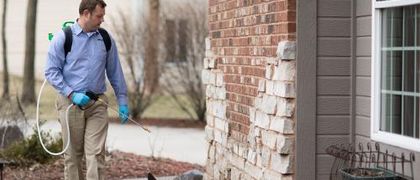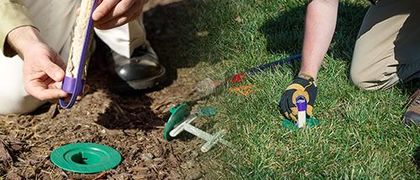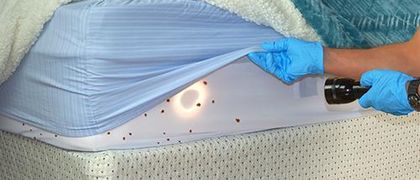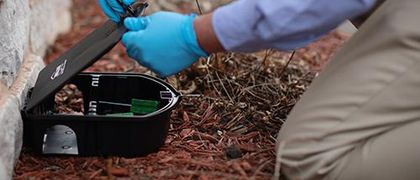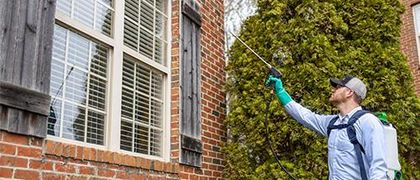Why Termite Prevention Matters Even in New Homes
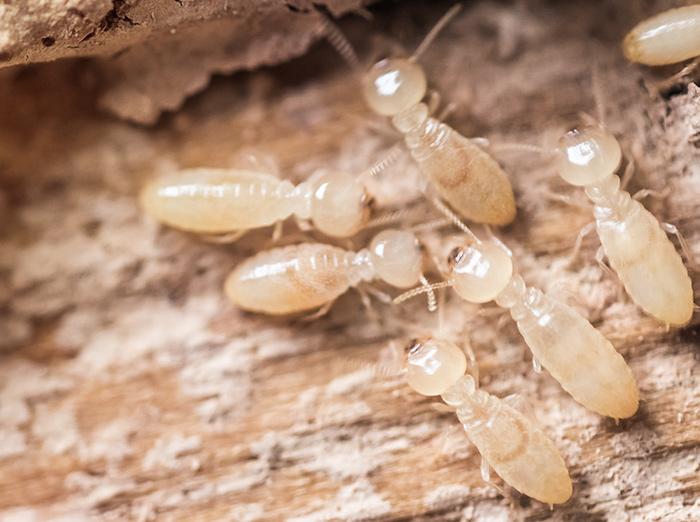
Building or buying a new home can be an exciting experience. Everything looks fresh and solid. But one hidden threat can still cause costly damage: termites. Many people assume new construction is safe, and that mistake can be expensive.
Termite prevention in a new home should start before you move in. Early treatments and inspections protect your investment for years to come. In the Midwest, where termites thrive in local soil and weather conditions, professionals in Des Moines, Kansas City, and Omaha recommend taking early action.
This guide explains why prevention matters in new homes, your best treatment options, and how professional help can prevent major repairs later.
Key Takeaways
- Start termite prevention during construction by implementing soil treatment, borate wood treatment, and vapor barriers.
- Subterranean termites in the Midwest thrive in damp soil and can enter even new homes.
- Effective options: liquid soil treatments, bait stations, and ongoing inspections.
- Miller Pest & Termite offers proven protection and transferable warranties for homeowners in the Midwest.
Termite Prevention In New Construction
During home construction, include termite prevention in your plan. Before the foundation is poured, soil treatment and wood framing applications create a barrier that makes the structure far less attractive to termites.
Builders often coordinate with a pest control company during the construction process. Professionals treat the soil under the slab, protect crawl spaces, and seal likely entry points. When you handle this before the first wall goes up, you cut the risk of future termite activity.
In the Midwest, the mix of soil and climate makes homes vulnerable to termites. Skipping treatment during construction can lead to significant problems and costly consequences. Most homeowners’ insurance policies don’t cover termite damage, so taking early preventive measures is a wise investment.
Subterranean Termites And Midwest Risks
Of all the types of termites in the Midwest, subterranean termites cause the most damage. They build mud tubes from soil to reach the wood in your home. Even treated or pressure-treated lumber, which still contains cellulose that termites feed on, can weaken over time without prevention.
Since termites live underground, a termite problem can remain hidden until significant damage becomes apparent. The risk is higher in damp crawl spaces, untreated wooden supports, or when mulch and firewood are placed too close to the foundation.
A proper termite control plan includes treated soil, vapor barriers in crawl spaces, and bait stations, such as Sentricon or HexPro. These systems work by targeting termite colonies before they can reach your home. Without these defenses, even a new build can face a termite infestation within a few years.
Termite Protection Methods For New Homes
New construction gives you options not available in existing homes. One approach involves treating the soil around and under the foundation with a liquid termiticide to block termite entry.
Another wood treatment involves borate (such as Bora-Care), which soaks into lumber to repel termites and other pests.
Bait systems add long-term protection. Termite bait stations placed around the yard attract termites and eliminate colonies over time. They work exceptionally well in places like Des Moines and Omaha, where subterranean termite activity is high.
Termite shields, vapor barriers, and resistant building materials also cut risk. Treated wood in crawl spaces and porches helps, but working with a professional is the best way to maintain strong protection every year.
Why Homeowners Should Not Rely On DIY
Some homeowners try store-bought products, but termites can be difficult to control. Liquid treatments need even coverage with no gaps. Bait stations require regular checks and adjustments to ensure optimal performance. Without proper training, small gaps can allow termites in.
A licensed pest control company offers proven termite treatments, warranty coverage, and ongoing inspections to protect your property. Homeowners can trust that the barrier stays effective year after year. In new builds, warranties add value over time by maintaining protection.
Miller Pest & Termite serves the Des Moines, Kansas City, and Omaha areas. Our termite services include advanced bait systems and preventive treatments specifically designed for homes in the Midwest.
The Role Of Termite Inspections In New Homes
Even with pre-construction treatment, annual termite inspections are essential. Technicians look for early signs of termite activity, such as mud tubes, hollow wood, and hidden entry points, around the home.
Many areas have building codes for termite prevention, but codes alone don’t keep a home protected. Ongoing monitoring and inspections do. When you partner with a professional pest management company, your inspections match warranty terms and local standards.
Making The Right Termite Prevention Choice For Your New Home
Even new houses in the Midwest can be affected by termites. Miller Pest & Termite offers protection plans that grow with your home, ensuring it remains safe as it ages.
Ready to get started? Contact us today to schedule your new-home termite inspection.
FAQs
Do new homes really need termite prevention?
Yes. Subterranean termites are active throughout the Midwest, and even new builds can become infested within a few years. Pre-construction termite treatment and ongoing inspections protect your investment.
What is the best termite treatment for new construction?
The most effective approach is combining soil treatment with liquid termiticide and borate wood treatment. Many homeowners also add bait stations for long-term protection against subterranean termites.
How often should I schedule a termite inspection in a new home?
Schedule a professional termite inspection annually to maintain practical barriers and detect early signs of activity.
Get Help Now!

